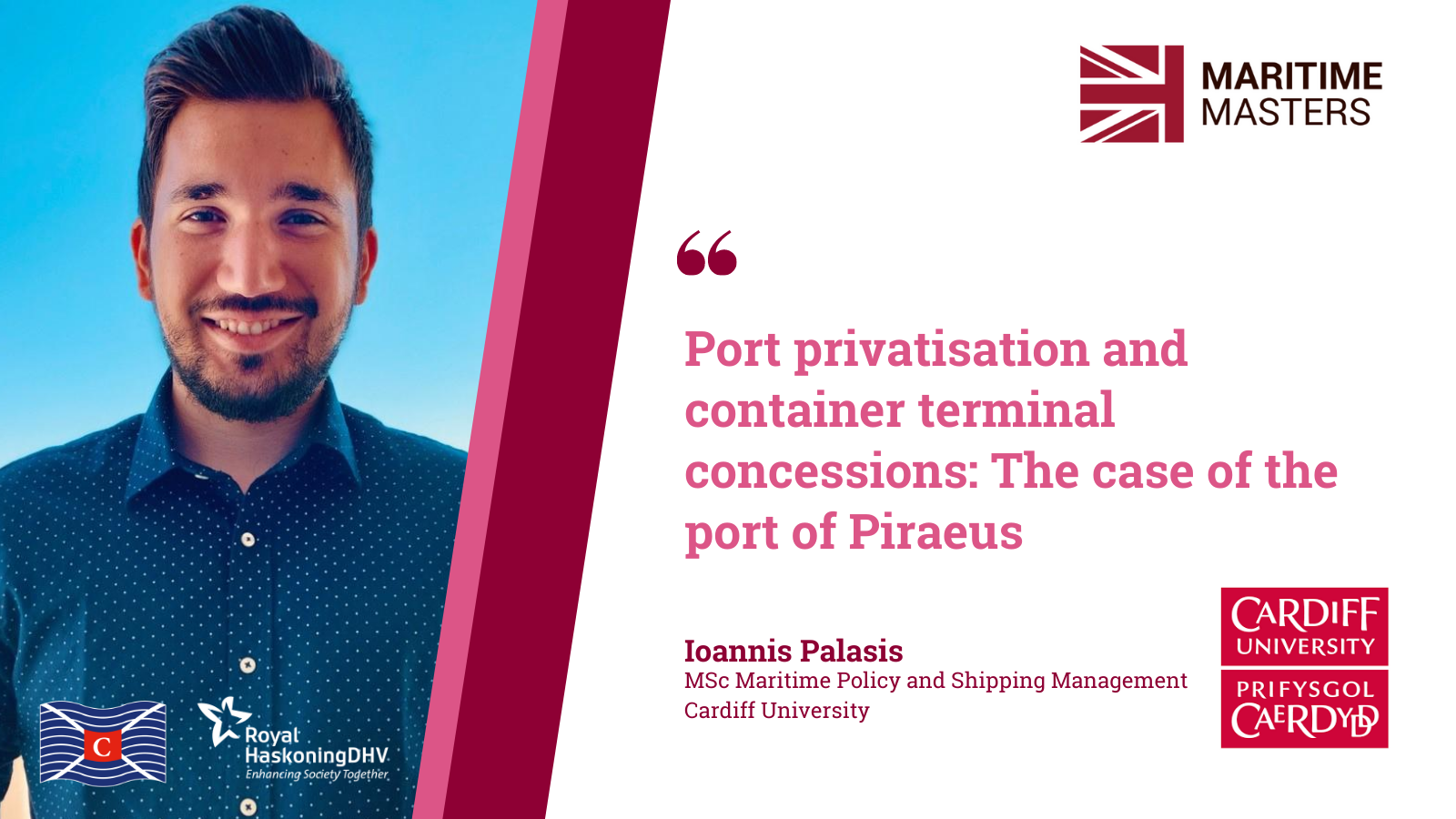2020 Finalist: Ioannis Palasis

Biography:
Nowadays, I am completing my postgraduate studies on the MSc Maritime Policy and Shipping Management at Cardiff University. I am also a graduate of Maritime Studies at the University of Piraeus. My aim for the future is to be associated with either the operations, chartering or financing of the commercial fleet of a shipping company. Looking into the future, my involvement into a tanker or an LNG fleet would be desirable as these kinds of fleets are the most advanced and complicated ones, in terms of technology and policy, although the bulk carrier fleet will always be an integral part of commercial shipping. In addition, port policy and port modernization are also concepts that fascinate me and I would like to be a part of their future development.
Introduction to research:
The dissertation is revolving around the concepts of port privatization and container terminal concessions. Its main focus is the Port of Piraeus, as a single case study, because its recent administrative reform embodies the involvement of the private sector in a rather state-owned port market. The concept of port privatization has been adopted since the 1970s, although this study aims to investigate a specific case of port privatization, which finally developed its own unique port regime and its results on the port’s competitiveness and performance.
It is also significant to uncover the reasons why a country like Greece, which preferred the state-owned port regime for several years, decided to change its stand and involve the private sector into its port market. Furthermore, the outcome of this decision will be demonstrated through a statistical data comparison between the top European ports’ throughput, as more than twenty years have passed since the port’s initial concession.
Finally, the study answers its research queries, that were set out in the beginning, and refers to possible limitations of the study, while also several suggestions for further research in the future is included.
What is your interest in or the practical applications of this research?
The Port of Piraeus is the most significant port for Greece, as it is located near its capital Athens. Since ancient times it has been a maritime centre for naval activities, such as shipbuilding and commodity trading. Nowadays, it still presents the centre of commerce for its local state, as it is a link in the logistic chain of Southern Europe and countries around the Black Sea, the Mediterranean and the Red Sea. As a result, the aforementioned port is a link between three continents, i.e. Europe, Asia and Africa, thus its increased strategic and economic value becomes apparent. The port’s performance is a topic that is very important for the local state, while the recent developments on its regime present a topic that attracts many researchers. As a Greek and a citizen of the city of Piraeus, it is also very significant for me to investigate the port’s course and operating results after its administrative changes, while both its future strategy and development are also invaluable.
Why did you choose maritime as your area of study and research?
My family has been highly associated with the maritime industry from many aspects, such as the fishing industry and commercial shipping. As a result, my interest in the maritime sector became clear from an early age. What fascinates me the most is the commercial fleet of the maritime industry and its development through the years. Marine pollution that occurred due to accidents, collisions and other antienvironmental practices has forced the maritime sector to evolve and improve its policies and vessel technological specifications, through the guidance of IMO. It is my deepest desire to contribute to this evolution and development of the maritime industry into a more efficient and environmentally friendly one.
